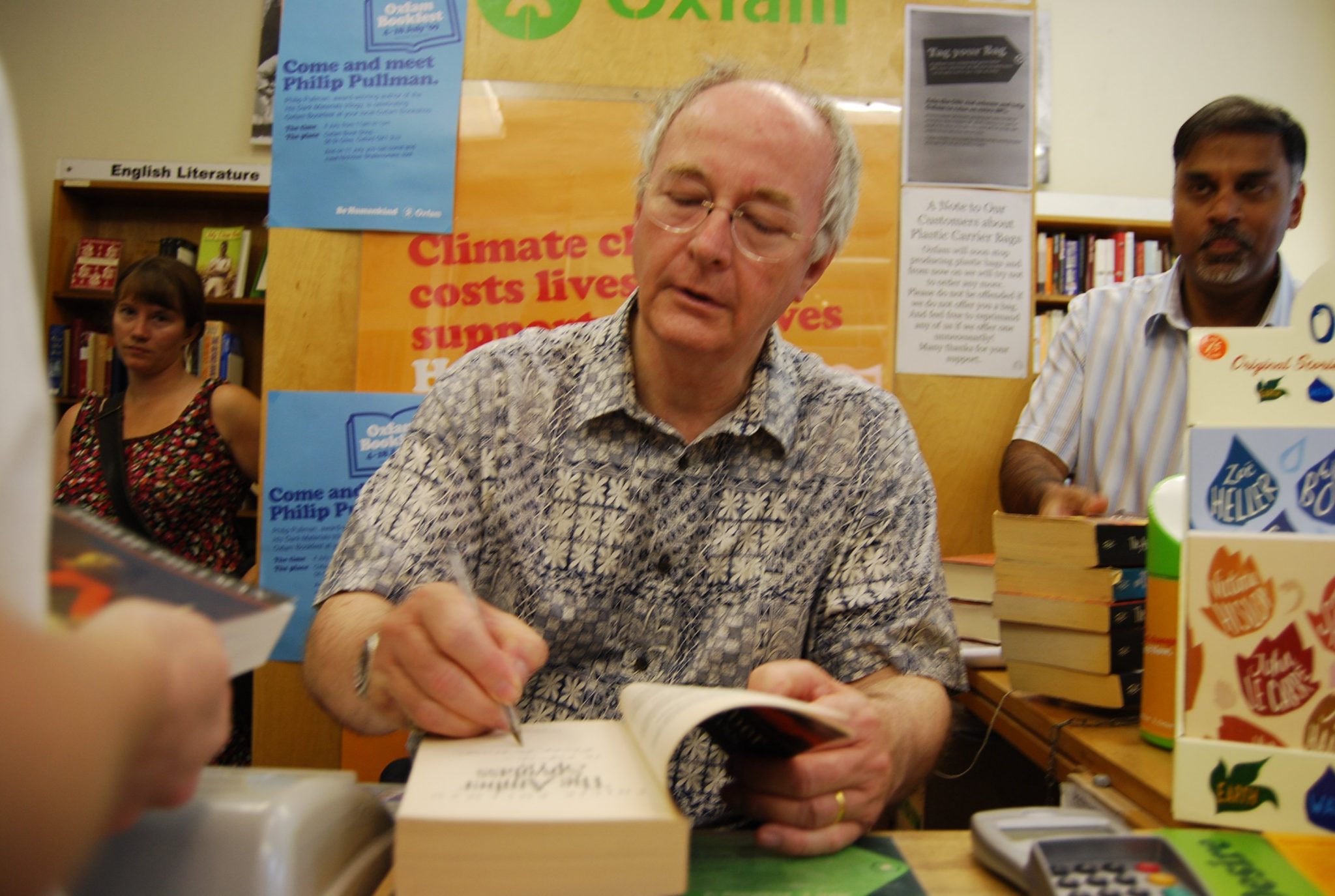Writers have a responsibility, first and foremost, to their stories. From the very beginning of the discussion between Philip Pullman and Katherine Rundell on Thursday of 6th Week, the philosophies of the two authors were made abundantly clear.
Any decent author has a responsibility to let their story do what it wants, rather than tyrannically imposing their will upon the tale. The concurrence of the two authors on this issue set the tone for the evening, and the over-arching similarities between the two became increasingly apparent as the talk went on.
The two authors appeared to be quite different personalities. Pullman was staunch and unapologetic, Rundell self-deprecating but brilliant. Yet both authors agreed that stories can want, think, and generally act independently of their authors.
Throughout the evening, the famously atheistic Pullman grappled with the dilemma that his characters seemed to originate ‘Somewhere Else’, and his conflicting certainty that that ‘Somewhere Else’ does not exist.
Rundell joked that she knows she is not completely in control as a writer, because her characters often say things far too clever for her to have thought up on her own.
Although vastly differing in experience, both authors presented themselves as conduits and recipients of ideas, rather than as the fount of these ideas themselves.
The pair also stressed how this role as a guardian of the story should come before any responsibility felt towards readers. Pullman condemned the idea of writing for the sake of one’s readers, and spoke at some length on his work with the Society of Authors, the UK’s most well-known trade union for writers, illustrators and literary translators.
He is clearly passionate to ensure that writing remains a viable profession, in an age of online bookselling and declining independent bookshop sales.
Indeed, the liberty to let the book do what ‘it’ wants is the very liberty Pullman is fighting for here. He wants authors to continue to write engaging and interesting material, without compromising their artistic agency for sales.
Just as they were incensed by such constraints on writers, both authors also expressed their sadness over attempts to categorise books into age ranges in their genre, and so constrain child readers.
Rundell made the eloquent point that a continual, upward trajectory of difficulty in reading material, if carried on into our adult lives, would make for a dull time when we reach our eighties.
Meanwhile, Pullman more viscerally expressed his disgust and exasperation that we would attempt to tell children when they should be reading each type of book.
Thus, these two seemingly very different people, one utterly comfortable, relaxed and more settled in his trade, the other fiercely intelligent, adventurous, and still in the early stages of her career, were in many ways kindred spirits.
Their self-professed roles as the guardians of their stories clearly united them. The interaction of the two revealed as much about their individual characters as it did about the character of all writers and together, they were able to establish not only what writers should do, but also why they should do it, and how their ability to do so ought to be protected at all costs.
Daemon Voices Lecture Review – Two generations share the same world view
Pullman and Rundell make for an oddly cohesive pair at their talk in Blackwells.



